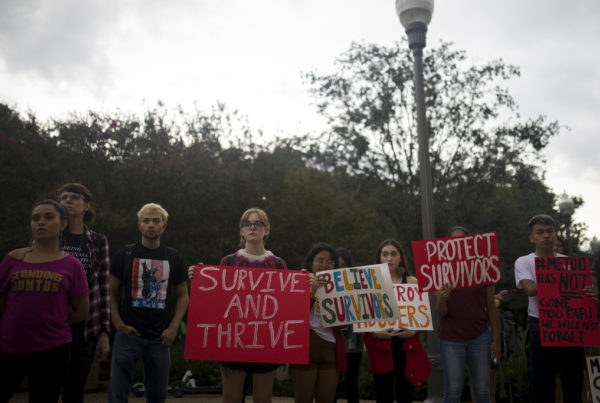The changing news landscape has been a struggle for many local papers. The Associated Press cites a study that found some 1,800 newspapers have shut down in just the last 15 years. Many of those were community weeklies.
That’s bad news for the newspaper industry, but Texas A&M professor Johanna Dunaway says it’s also impacting our politics. She co-authored a study in the Journal of Communication that found newspaper closures polarize voting behavior, as evidenced by a decline in split-ticket voting.
“Split-ticket voting is when people don’t just vote the party line,” Dunaway says. “And for years and years and years, we’ve seen high rates of split-ticket voting as people voting in lower-level races would cross over to the other party based on good behavior or performance for their house reps, for example, or senators.”
Dunaway and her fellow researchers found that in communities where a local newspaper had died, rates of split-ticket voting declined. She and her colleagues believe the reason is, in part, because news consumers are turning to other sources.
“So, we argue that probably a lot of people default to national sources of media, but Facebook is another option that’s just as likely,” Dunaway says. “And in both cases, when they are no longer getting that sort of localized, special news that’s addressing the local geographic community, what are they hearing about? They’re hearing about politics through the lens of the two national parties, which is typically conflictual, partisan and polarizing.”
Dunaway says those who might want to fight against such results should support local news efforts, whether that means newspapers, broadcast or online sources.
Written by Laura Rice.














